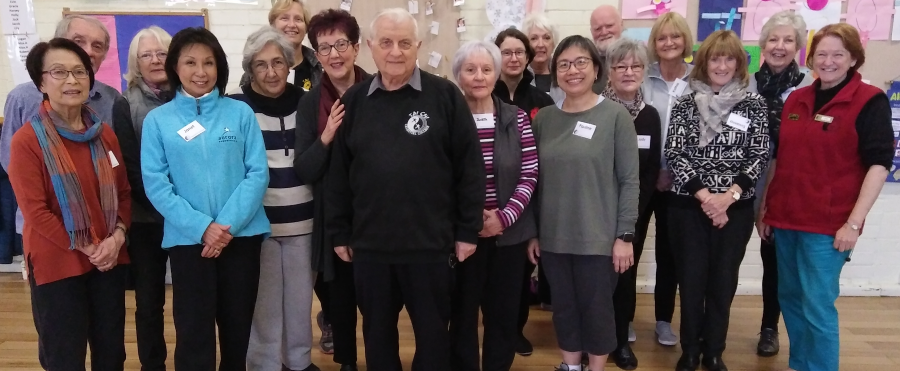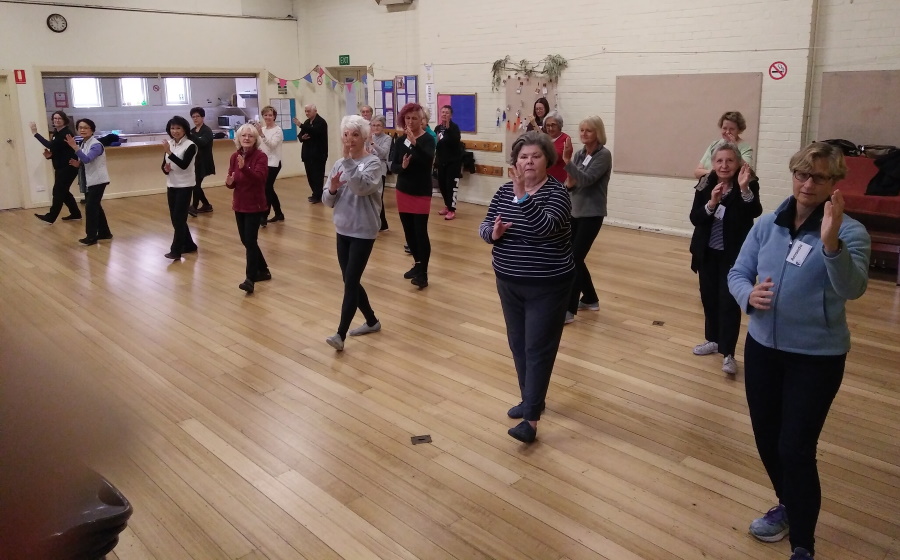When I started Tai Chi, under the wonderful instruction of Mario Cianci (Level 1) and Suzette Hosken (Levels 2-6), I knew I struggled a little with keeping my movements slow. Having been a karate student for six years at that stage (now 19 years!), I realised that even though there were numerous similarities between Tai Chi and karate movements, the speed of the movements was vastly different. It took a great deal of mindfulness for me to slow down.
I did some research and discovered the text below, focusing on slowness. I read it to my Camberwell class a while ago, and asked them to take particular note of how they feel when moving slowly. We all agreed that slowing down our movements mindfully was very cathartic and meditative. Mindful practice of Tai Chi eliminates distractions and makes us more aware of our bodies and movements.

Here is what Deng Ming-Dao, a Chinese-American author, artist, philosopher, teacher and martial artist, says about why Tai Chi should be done slowly:
“Taijiquan is slow because it asks us to move with our entire body at once. Unlike styles which take a strong stance and then use that stable base to punch hard, Taiji asks us to strike with the force of our legs and waist combined with our arm strength. Slowness allows us to gain that coordination.
• Taijiquan is slow because it asks us to develop our bodies evenly. Too easily, we can throw a punch out or leap into a position without investing in a complete training of every fibre. Slowness allows us to work every part of our bodies.
• Taijiquan is slow because it incorporates relaxation. Relaxation is important because it allows us to move by reflex, to promote blood circulation, and to dispel tension. Slowness allows us to realize the internal aspects of Taiji.
• Taijiquan is slow because it unites body and mind. We have to be aware of every nuance of our movement. Slowness allows us to join every part of our being in a single harmonious whole.
• Taijiquan is slow because it aims at serenity. We eschew being rushed and frantic. We don’t worry about anything. We can be leisurely. Slowness allows us to find peace.
There are probably many more points to be discussed, but slowness is part of the radical proposition—and tremendous effectiveness—of Taijiquan.”
Jo Fraser
Instructor, Camberwell and Doncaster East Day centres

- Check out what events have been effected by the Coronavirus restrictions.
- Join in the activities that we do.
- How to start Tai Chi with us?
Updated: 16 April 2020


